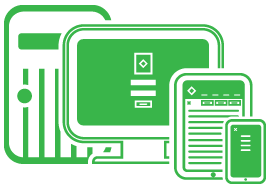
Legacy to Web Software Conversions
Legacy-to-web software conversions result in converting essential and outdated software to the latest web-based technologies.
Watch Our VideoBenefits to Converting to Web

Our Legacy-to-Web projects result in re-programming your old software in new web-based platform, which means it can be accessed from a web browser using any internet-enabled device. This allows users to securely work from the office, hotel room, home, or any other remote location with an internet connection. In addition, there are no installation discs or software updates to distribute to the workstations. The custom software is posted and maintained in one location.

Easier Maintenance
There are no patches distributed to multiple end-users. All updates are applied to the web server.

More Accessibility
The application can be accessed from anywhere using any internet-enabled device.

Centralized Database
Keeps your data secure in a centralized location on a company web server.

Works on any Device
The application will work on any device regardless of the operating system or platform.
Types of Legacy Software We Convert
DOS Applications
Windows Applications
MS Access Applications
Excel Sheet Applications
Additional Software Development Services
that might interest you.
We are available to answer any questions you may have.
Call us at 918-742-0028 or can send us a message.
Frequently Asked Legacy-to-Web Questions
A legacy-to-web migration is the process of taking older systems — such as DOS programs, Windows applications, Access databases, or Excel-based tools — and moving them to a modern, web-based platform. This type of software migration (sometimes called code migration or application migration) makes your system more secure, accessible, and easier to maintain.
A conversion (or application migration) brings multiple benefits: your software works on any device with a browser, your data is stored in a centralized secure database, and updates are applied once on the server instead of across multiple computers. It also improves remote accessibility, so your team can work from anywhere.
Yes. As part of the software migration process, we create a structured plan to securely move your data from the old system into the new web-based platform, validating it along the way to ensure accuracy and business continuity.
Yes. Many businesses use a code migration project as the right time to streamline workflows, improve reporting, or add new features that were difficult or impossible in the old system.


 Software Design & Specifications
Software Design & Specifications
 Custom Software Development
Custom Software Development
 Third Party API Integration
Third Party API Integration
 ASP.NET Development
ASP.NET Development
 Web App Hosting
Web App Hosting